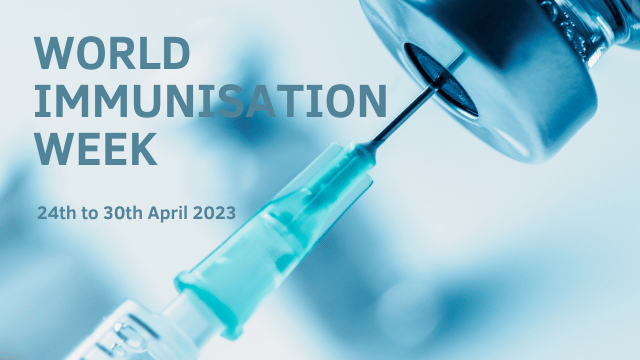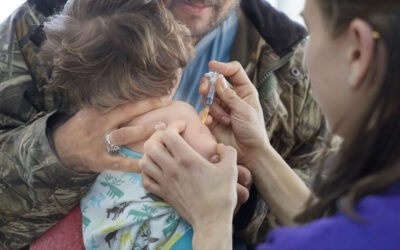World Immunisation Week is an annual event that takes place during the last week of April. It is a time to raise awareness about the importance of vaccines and the role they play in protecting people of all ages from dangerous and deadly diseases. In 2023 Under the theme of ‘The Big Catch-Up’, The World Health Organisation (WHO) is working with partners to accelerate rapid progress in countries to get back on track following the COVID -19 pandemic to ensure more people, particularly children, are protected from preventable diseases.
The effects of the pandemic
The COVID-19 pandemic has had a significant impact on vaccination programmes around the world. While vaccines have been a key tool in the fight against the pandemic, the disruptions caused by the pandemic have also affected the delivery of routine immunisations, such as those for measles, polio, and tetanus.
One of the biggest challenges has been the disruption of supply chains. Many countries rely on vaccines that are produced in other parts of the world, and the pandemic has caused delays and shortages in the production and distribution of vaccines. This has led to shortages of some vaccines and delays in the delivery of others.
Another challenge has been the disruption of healthcare services. Many healthcare facilities have been overwhelmed by the pandemic, leading to the cancellation of routine immunisation clinics and a reduction in the number of healthcare workers available to administer vaccines. This has led to a decrease in vaccination rates in some areas.
The importance of immunisation
Immunisation have been one of the most successful public health interventions in history. They have helped to eradicate diseases such as smallpox and have significantly reduced the incidence of other diseases such as polio, measles, and tetanus. Vaccines have also been instrumental in controlling the spread of COVID-19, with many countries around the world using vaccines as part of their pandemic response.
Despite the proven benefits of vaccines, there are still many people around the world who are not vaccinated. This may be due to a lack of access to vaccines, misinformation about their safety and efficacy, or a reluctance to get vaccinated. This is why World Immunisation Week is so important – it provides an opportunity to raise awareness about the importance of vaccines and to promote their use.

During World Immunisation Week, governments, healthcare organisations, and community groups around the world come together to promote vaccination campaigns and to provide information about the vaccines that are available. They may offer free or low-cost vaccinations, provide educational materials, or hold events to raise awareness about the importance of vaccines.
In addition to traditional vaccines, there are also new and innovative vaccines being developed that could help to prevent a wider range of diseases. For example, researchers are currently working on developing a vaccine for HIV, a disease that affects millions of people around the world. These new vaccines have the potential to save even more lives and prevent the spread of diseases that were previously difficult to control.
As we mark World Immunisation Week 2023, let us remember the incredible impact that vaccines have had on public health and the many lives that have been saved as a result. Let us work together to ensure that everyone has access to life-saving vaccines and that we continue to make progress in the fight against infectious diseases. Remember, vaccines work – and by getting vaccinated, we can help to protect ourselves, our communities, and our world.




